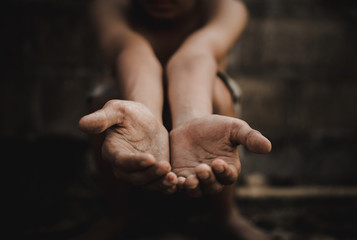Disclaimer: The views and opinions expressed by the author(s) do not represent the official position of Barbados TODAY.
By Ralph Jemmott
The Barbados Labour Party (BLP) administration has recently announced its intention to examine the current state of poverty in Barbados. It hopes that by the end of 2024, it will have available data regarding the number of people actually living in poverty, the nature of that poverty and what measures it might best implement to mitigate the scourge of impoverishment.
It is always good to know the phenomenon that one is attempting to confront and improve. I say ‘improve’ rather than ‘abolish’ because it is nearly impossible to eradicate poverty from human society given the nature of the species. The Good Book says that the poor will always be with us. One takes that to mean that given our flawed natures, perverse and foolish, people will always connive in their own impoverishment.
I was watching a TV programme on homelessness in San Francisco and I was shocked at the number of relatively young people living on the streets. The production revealed that a large percentage of those people were victims of self-inflicted personal vices of one kind or another, the most common being illicit drugs.
However, collective poverty is invariably systemic in the sense that it is inherent in the socio-economic model. Talk show host Walter Blackman keeps lamenting that for nearly 400 years Black people in Barbados have been at the bottom of the socio-economic structure. He calls for a ‘new economic-financial model’.
Assuming that he knows what he is talking about, Blackman needs to tell us what that ‘model’ would look like. How would it operate outside of the confines of the global capitalist economic order? Sometimes I think that Walter is still hankering after the socialist ideals that we, as young men, pondered so idealistically back in the 1970s and 80s.
What governments can do is to tweak or reform the system to eliminate the more egregious examples of abject (as opposed to relative) poverty. Absolute poverty in its worst aspects refers to the lack of the three basic requirements of human existence: access to food (the avoidance of hunger), clothing (the avoidance of nakedness or raggedness) and housing or shelter (a roof over one’s head).
Most capitalist economies produce some degree of relative poverty because capitalism, though it produces the goods and services perhaps more abundantly than other systems of production, hardly ever produces full employment and invariably produces a level of the working poor that may constitute a sunken underclass that is welfare-dependent. These are the people who in the words of the Tracy Chapman song are “standing in the welfare lines waiting on the armies of salvation”.
Poverty reduction does not represent a linear line of progression. The government’s own figure would indicate that it does not. In 1997 the number of households living below the poverty line in Barbados was 8.7 per cent. In 2010 the number was 15 per cent and in 2016 it had risen to 17.3 per cent. Unquestionably the COVID-19 pandemic exacerbated the problem. Even large economies are subject to booms and busts, going from prosperity to minor recession or major contraction that may adversely affect people on the margins. Eunice Goes, the Portuguese writer and commentator, who was a regular on the BBC programme Dateline London, noted that in Italy some 10 per cent of households lived below the poverty line.
Small open economies like Barbados must be even more vulnerable. This is unless governments are committed to policies of income redistribution and even then there has to be enough income to effectively redistribute. Redistribution is itself an ideologically politically informed process which has its hazards.
One stated purpose of the proposed Barbadian study is to better cater welfare resources to those most in need and if possible to try to stem the tide of homelessness and vagrancy. But that would be a long-term effort that would call into account a lot more than welfare expenditure.
A few weeks ago someone stated regarding Black people that we needed to create generational wealth. This is true. Black redemption will depend on three things. The first is the restoration of the Black family as a coherent structure, nuclear or extended. The second is a true sense of racial pride, not the ephemeral outward show in dress and ostensibly pro-African hairstyles, but substantively in the ways we relate to each other. The third is the imperative of economic consolidation where we own something rather than where we work for and buy from other people.
But instead of creating generational wealth and psychic well-being, we see that throughout much of the Black Diaspora, we are creating intergenerational poverty and generational pathologies of one kind or another. Drug trafficking and abuse, Black-on-Black crime, sometimes of horrendous proportions and the perennial tragedy of fatherless children, stand-alone dependent motherhood and foul displays of indulgent toxic masculinity.
Black politicians and petit-bourgeois academics invariably do not speak to these matters. The former is because a naked truth which needs to be spoken will not procure votes in an election. They prefer to make empty promises that they invariably cannot fulfil. Take for example the promise to make Barbados something called ‘a rent-free democracy’, where presumably everybody will own their own home. Balderdash.
Issues such as poverty and crime reflect complex socio-cultural and economic phenomena. They will not go away because we do a study or appoint a czar or make someone a Minister of State in some office. It requires conscious critical thought on broad social construction about the kind of society we want to create.
That kind of vision must go beyond macro-economic obsessions and political wishful thinking.
Ralph Jemmott is a retired educator and frequent commentator on social issues.




